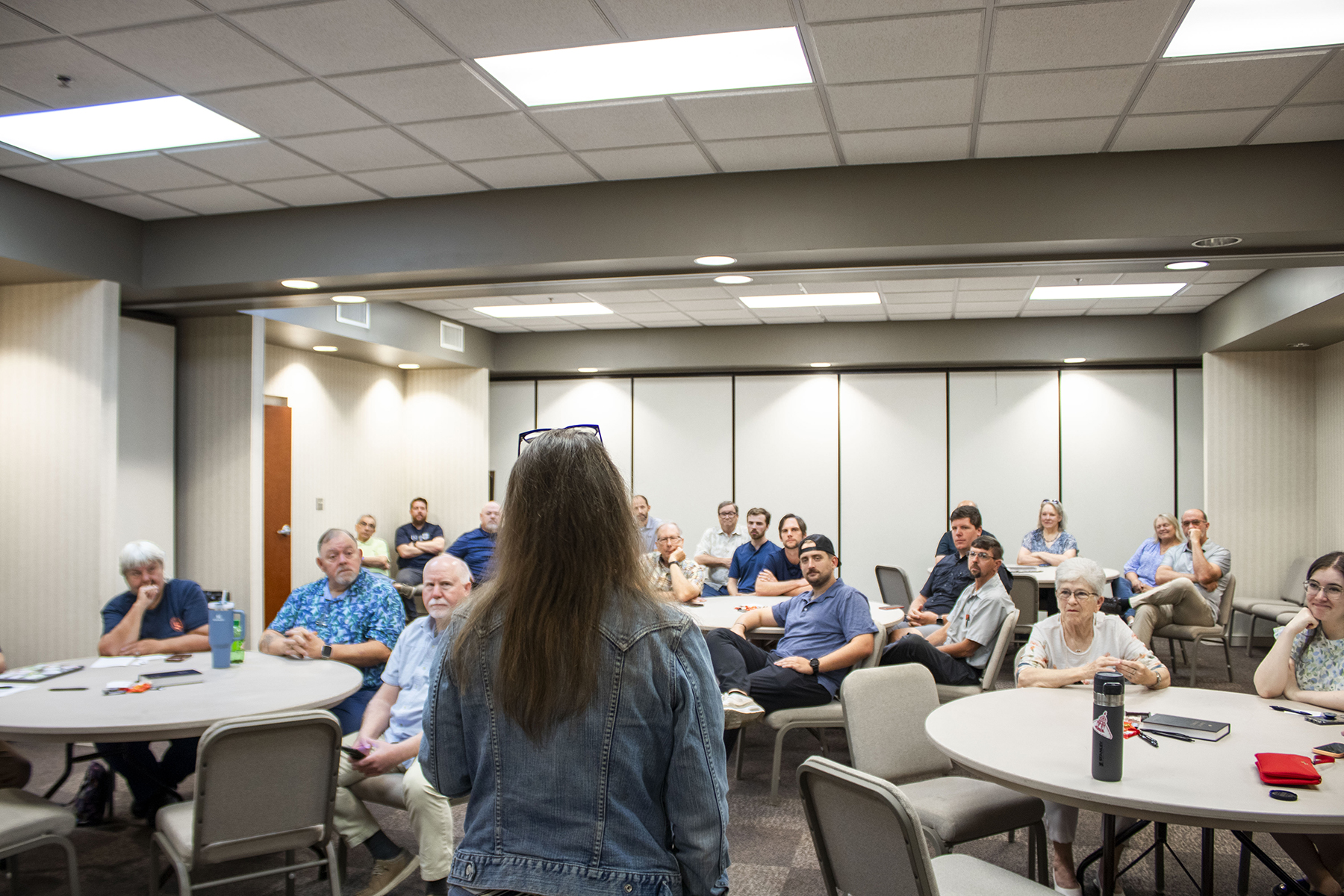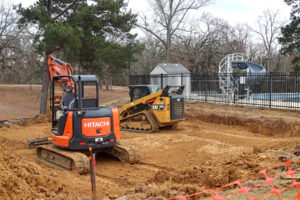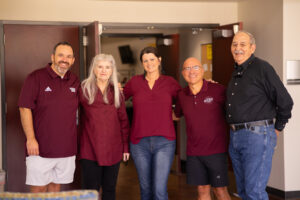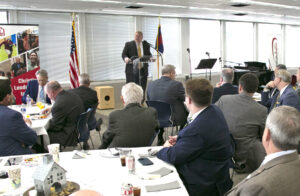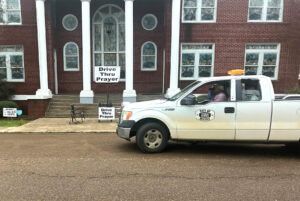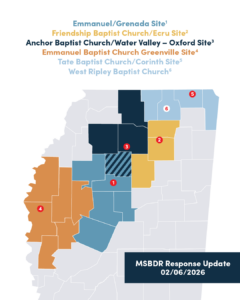By Lindsey Williams
Writing Specialist
As a young girl, Dr. Claire* considered missionary life to be totally normal since her father, also a doctor, frequently treated missionaries on stateside. Little did she know that God would call her to missions in the disengaged deserts of Africa.
Now an International Board Mission Board (IMB) representative back on stateside herself, Dr. Claire shared her story in a series of three Connection Meetings hosted by the Missions Mobilization department of the Mississippi Baptist Convention Board (MBCB) held across Mississippi in mid-July.
“Missions Mobilization exists to come alongside you and your church, to help you in missions and to help mobilize your church on mission,” said Chad McCord, director of the MBCB Missions Mobilization department. “But we also exist to mobilize your church to find partnerships around the world. Meetings like this help us to be aware of people who are serving in very difficult places and how your church can partner with them, through praying, through giving, and through going or sending.”
A daunting task
A decade ago, Dr. Claire and a few other families joined the IMB’s newly formed North Africa Team, serving an extensive region with very few IMB workers present. With remote communities encompassing over one hundred people groups, speaking over one hundred distinctive languages, the task was daunting.
More than half of these majority-Muslim people groups remain unreached today, meaning there is little to no Gospel presence within their community. Tribal prejudices cause animosity between groups, making evangelism difficult for even the national Christian. A lack of basic education, resources, accessibility to medical care, and clean water lead to problems such as a shockingly high childhood mortality rate, as well as an overwhelming mortality rate among expectant mothers.
In order to meet their spiritual needs, the IMB team began by meeting their physical needs.
Droughts are a massive issue in the desert. Dr. Claire recalled when a village once lost their entire livestock to an extremely dry season. One of her teammates, an engineer, built sustainable windmills to pump underground water into wells.
Learning through storytelling
Dr. Claire shared her experience with serving in their medical projects, which included teaching ten lessons they developed — a combination of health stories and Bible stories. With these lessons, the team was able to teach both simple nutrition and the simple Gospel message.
“After we had done work on the well, we could gather a group of families together and present these ten stories,” Dr. Claire said. “The health stories are as simple as washing your hands when necessary and brushing your teeth, and as lifesaving as making rehydration solutions for children suffering diarrhea.”
The community responds well to the health stories because they are oral learners — they use stories to gather information, often memorizing them to share with others. The IMB team utilizes that learning technique by sharing stories from the Bible. The first one they teach is the parable of the four soils.
“We tell them about the path where the seed never takes root, the rocks, the thorns, and then the good soil,” Dr. Claire said. “Then we tell them we want them to be the good soil and take these stories and share them with other people. All of them will benefit from health stories, but even more so will they benefit eternally from receiving the truth about Jesus.
“One thing we do to help them share the stories is by giving them a memory card to put in their phones, that way they don’t have to completely memorize these ten lessons. They can take their phones to another place, find someone to show them to, and hit play. Now we have an audio format of the Bible in the common language of the region, and that is huge.”
Dr. Claire was also excited to share about a group of faith-professing women with whom she meets regularly for discipleship. Their eager attention to storytelling encourages her to teach Bible stories to them in their language, but she admitted that she had to become accustomed to the way they respond to the message.
Unlike the form of studying taught in American schools, which analyzes a story and pulls instructive lessons from it, the village women responded to Dr. Claire with more stories. At first, she was discouraged, thinking the women were distracted, but she began to understand that this was how they received the Word — by understanding it through their own stories. Sometimes she has to correct or clarify how they understood the story, but now she is learning how to better disciple them in their context.
Sharing through storytelling
Over the years, the families within her team have moved back to the states. In December, Dr. Claire said goodbye to the last family, and for now, she is the only IMB member on her team. Despite the challenge, she took the change as an opportunity to advance the ministry. As Jesus had done in the Gospels, Dr. Claire sent out the women in groups of two to seven villages. These groups of women, all but one of whom can neither read nor write, have each reached around 25 people with the Gospel presentation.
“When these ladies go out, they ask the women they’re sharing with if they have any prayer requests,” said Dr. Claire. “In one case, a very pregnant woman asked for prayer that she would have her baby safely. That very night, the woman went into labor, without a hospital, without a doctor, likely without a midwife, and she had her baby without any complications. When the women returned to the village, the new mother told them, ‘I had my baby and it’s because you prayed for me.’ She even named her baby girl after the woman who prayed for her. That tells me she believed the prayer was answered by God because a follower of Jesus prayed for her.
“God really cares about the least of these. In this part of the world, these women are considered the lowest of the low and the poorest of the poor. They feel like they have been forgotten by everyone, but they haven’t been forgotten by God. Jesus knows them by name, He loves them, and He cares about them. They are going out with joy to all these other villages to make Him known.”
Pray for Dr. Claire, and missionaries like her, who are blocked from returning to the field by Visa issues. Pray for Dr. Claire, and missionaries like her, who face isolation and loneliness on a daily basis. Pray for the sisters in Christ in North Africa to remain steadfast in the truth and their faith even as they are separated from Dr. Claire. Pray for the people of North Africa to hear the stories of Jesus and receive Him for themselves.
If you have questions about ways you and your church can partner with missionaries like Dr. Claire, contact the Missions Mobilization department at cmunn@mbcb.org or 601-292-3398.
*Name changed for security reasons

